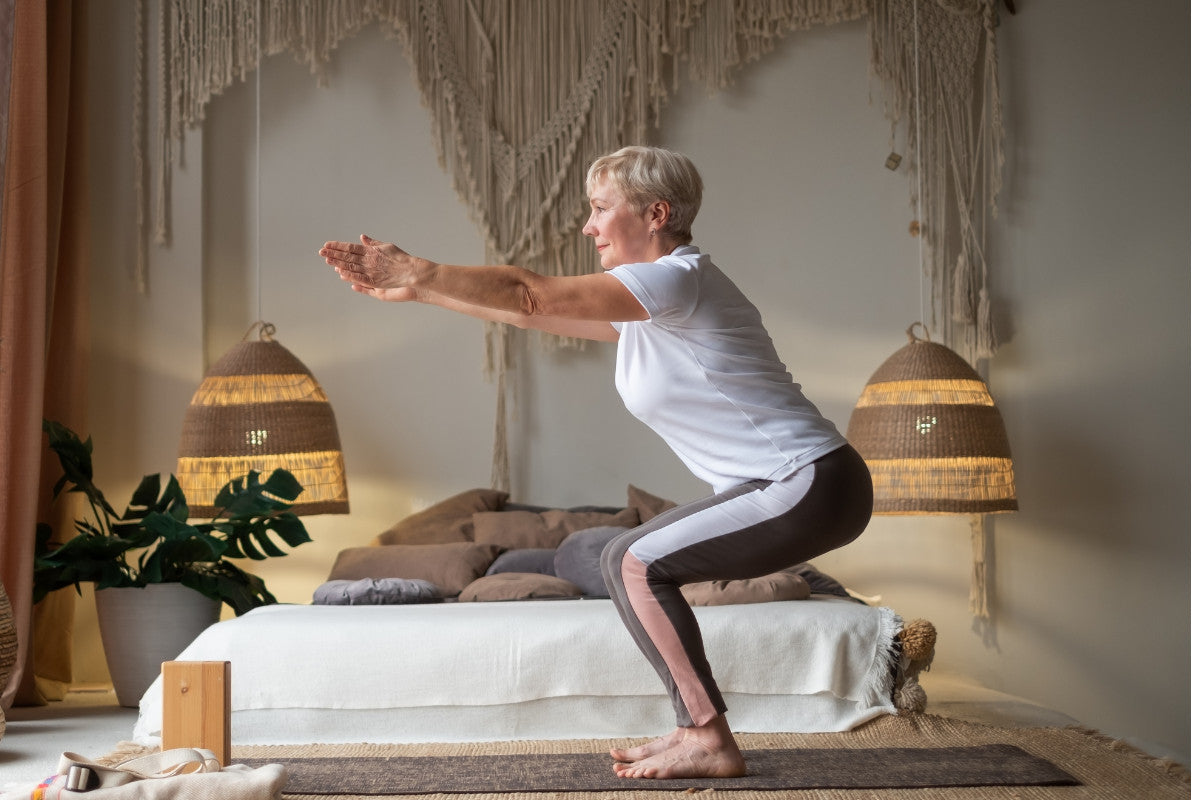Your Cart is Empty
FREE SHIPPING OVER $45 & RETURNLESS REFUNDS

You know, sleep isn’t always as easy as just turning off the lights and closing your eyes. Especially as we get older, it can feel like our joints and muscles have a mind of their own. Tossing and turning, waking up in discomfort, or feeling like you just ran a marathon overnight—that's all too familiar, right?
Now, we’ve covered a lot this National Sleep Month, from sleep positions to things like whether sleeping on the floor can actually help with sciatica. But today, I want to share one last tip to help you improve your sleep: bedtime stretches.
Joint and muscle discomfort is something we all deal with (unfortunately), and stretching before bed can be a total game-changer for easing that tension.
Stretching isn’t just about flexibility—it’s about helping your body relax and get ready for sleep. After a long day of discomfort, a few minutes of stretching can release that built-up tension and reset your body, making it easier to settle in for the night.
The more relaxed you feel, the better your sleep will be—and we all know that a solid night of rest is the key to feeling better and tackling tomorrow with more energy.
Tight hamstrings can contribute to discomfort in your lower back and legs, making it hard to get comfortable at night. By stretching the hamstrings, you're easing that tension and promoting relaxation. It helps improve blood flow to your legs and back, making it easier to find a comfortable position for sleep. A more relaxed body means better sleep quality.
This gentle stretch targets the lower back, hips, and thighs. By releasing tension in these areas, you’re telling your body it’s time to wind down for sleep. The deep stretch helps alleviate discomfort that can make it tough to relax, especially if you’ve had a long, tiring day. It’s a fantastic way to calm your body and mind before hitting the pillow.
The Cat-Cow stretch helps release stiffness in your back, shoulders, and neck. By gently moving your spine in different directions, you increase flexibility and reduce tension, making it easier to get comfortable in bed. When your back feels more relaxed, it’s that much easier to fall asleep and stay asleep, without waking up sore or stiff.
Tension in the shoulders and upper back can make it difficult to sleep peacefully. This stretch helps ease that discomfort, particularly if you carry stress in your shoulders or neck. By relaxing these muscles, you’ll be able to settle into a comfortable position and enjoy a better night of sleep.
Deep breathing helps activate your parasympathetic nervous system, which promotes relaxation and prepares your body for sleep. By reducing stress and promoting relaxation, this practice will help you ease into sleep without feeling tense or restless.
If you’ve been dealing with sleepless nights, these bedtime stretches could be a simple, but effective, way to ease discomfort and help your body get the relaxation it needs. It doesn’t take much, but those few minutes before bed could make a world of difference in how you feel when you wake up.
And remember, if you want to give your muscles an extra boost, our Pain Cream and Magnesium+ are natural options to help you relax even more before bed. These products work hand-in-hand with these stretches to ease discomfort and help you sleep like you deserve.
Catch those ZZZs! 💤